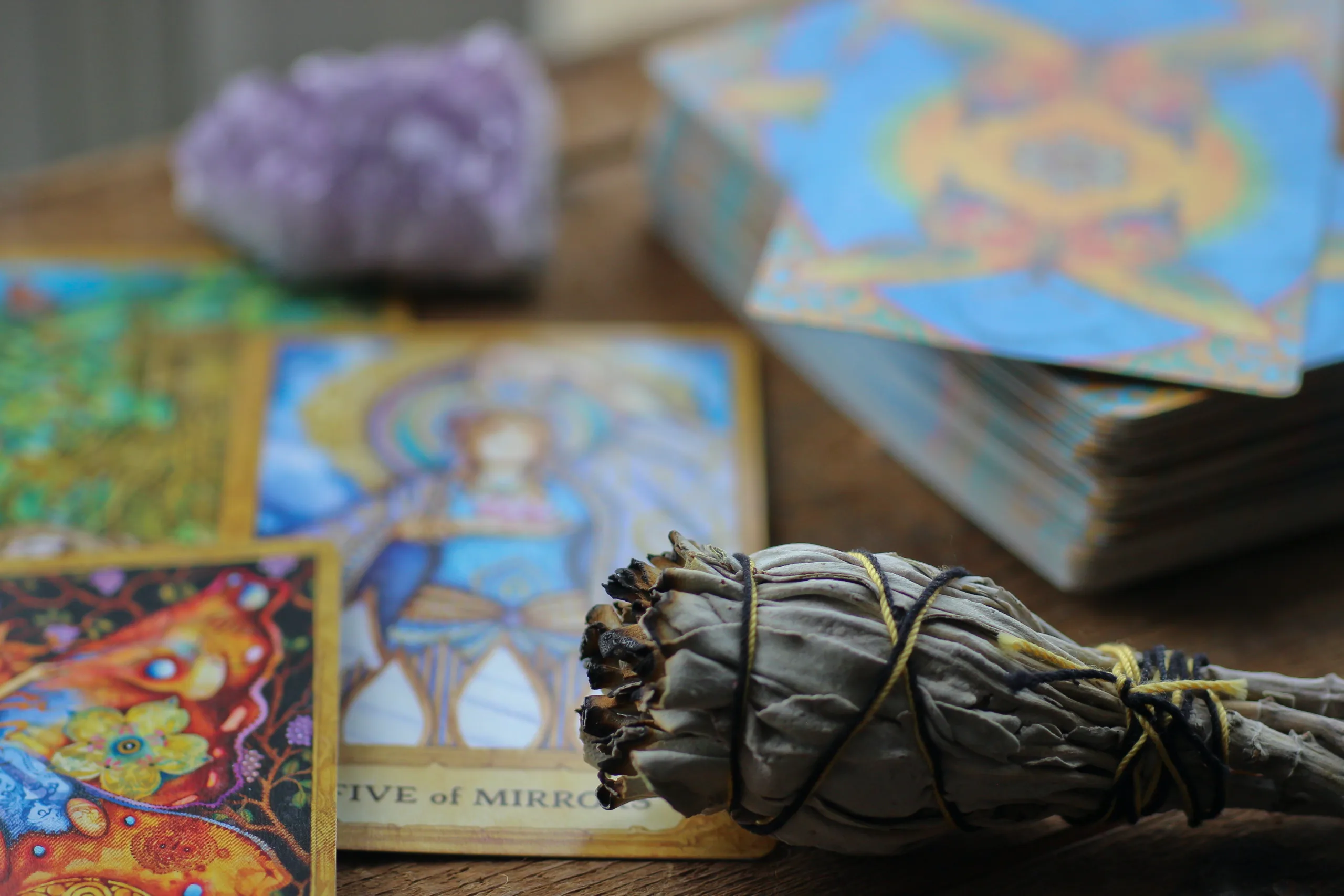Introduction to Tarot Cards
Tarot, a profound and mystical divination tool, invokes curiosity and intrigue. Depicting vivid narratives through its rich imagery and complex symbolism, each card in a Tarot deck tells a unique tale. So you may ask – "What is the most powerful card in the tarot?". Bear with us as we journey through the realms of tarot, exploring its background, the elemental separation in a tarot deck and ultimately unraveling the answer to this riddle.
 Image by Kayla Maurais. Source: Unsplash.
Image by Kayla Maurais. Source: Unsplash.
The Background of Tarot Cards: Mystical Origins and History
Despite numerous theories, the exact origins of tarot remains shrouded in mystery. It’s believed that Tarot cards originated in Italy during the mid-15th century as playing cards. Over time, they evolved into a deep occult system for divination and self-discovery.
Understanding Tarot Cards: Divination and Symbolism
Tarot serves as a symbolic map of the conscious and subconscious mind. Each card is infused with symbolism, blending together numerology, astrology, color theory, and more. By ‘reading’ these symbols, one discerns patterns mimicking life facets, offering insights and guidance for personal growth.
Key Elements of a Tarot Deck: Major & Minor Arcana
A standard tarot deck comprises 78 cards divided into Major and Minor Arcana. The Major Arcana consists of 22 cards signifying significant life events or stages, while the Minor Arcana comprises 56 cards representing the minutiae of everyday life.
Demystifying the Power in the Tarot
Unwrapping the concept of ‘power’ in tarot invites an exploration beyond the conspicuous. Power doesn’t merely denote brute force or control but expands to include influence, transformation, insight amongst others.
Unwrapping the Concept of ‘Power’ in Tarot Cards
‘Power’, here refers to the profound and transformative potential of the card. It’s about understanding and leveraging the inherent energy of the card to navigate life’s complexities.
Factors Determining the Power of a Card
The ‘power’ of a Tarot card is determined by various factors, such as its symbolism, orientation (upright or reversed), context, subjective reader’s perception, and the inquirer’s personal connection and reaction to the card.
Evaluating Powerful Candidates in the Major Arcana
Keep in mind, each card holds distinct power bound to certain situations. Conversely, some cards consistently reverberate far-reaching influences that prompt transformations on vast scales.
The Magician – Master Over Material World
The Magician Echoes mastery over the material and spiritual world. It instills belief in one’s ability to manifest dreams into reality, affirming power resides within ourselves.
The Empress – Catalyst for Creation and Nurture
The Empress symbolizes creation, fertility, abundance, and nurturing, rendering her powerful as she signifies life’s perpetual creation cycle.
The Wheel Of Fortune – Fate & Destiny Unleashed
The Wheel of Fortune represents life-cycles, destiny and luck. The inherent unpredictability of this card lends it power, as it demonstrates the cyclical nature of life.
Unveiling the Most Powerful Card in Tarot Deck
Perceived by many as daunting or negative, The Death card hides within it profound transformative power and stands tall as arguably the most powerful card in the Tarot.
Introduction to The Death Card – A Misunderstood Symbol of Transformation.
Contrary to popular belief, The Death card rarely signifies physical death. Instead, it symbolizes endings, transitions, and profound transformations – a sort of ‘metaphorical’ death leading to rebirth.
Conclusion: Power is Perspective Dependent in a Tarot Deck
Fundamentally, power in a tarot deck is subjective, tethered to personal insight and interpretation. What might feel empowering to one might not to another. Hence, it’s crucial to approach Tarot with an open mind, embracing the intricate tapestry of symbolism and meaning it presents.
FAQs
-
What are some factors determining the power of a card?
Factors include symbolism, orientation, context, reader’s perception, and the querant’s personal connection and reaction to the card. -
Why is "The Death" card considered powerful?
The "Death" card symbolizes endings, transitions, profound transformations – a ‘metaphorical’ death leading to rebirth. This transformative energy gifts it with immense power. -
Can any Minor Arcana card be potentially powerful?
Absolutely. While the Major Arcana cards signify significant life stages or events, the Minor Arcana’s power lies in its detailed portrayal of daily life situations. -
How does one interpret ‘power’ within a tarot deck reading?
Power interpretation is anchored upon understanding the inherent energy of a card within the contextual framework of a reading, supplemented by inquirer’s personal resonance and reaction to the card.